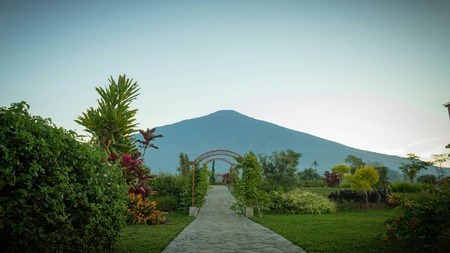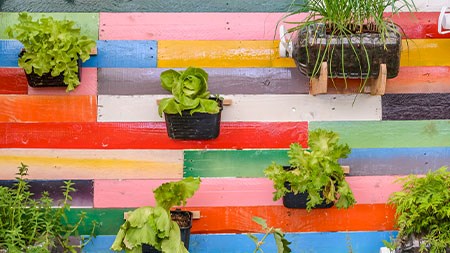You remember that hen-and-chicken plant that always stood in the hallway of your great-grandma’s old Victorian house?
It came originally from South Africa.
In fact, the hen-and-chicken (or spider plant: Chlorophytum comosum) and the geraniums (the various Pelargonium species) – that are probably the two most popular indoor plants in the world – are both indigenous to South Africa.
Indoor diversity
The thing is, of course, that with more than 22 000 species of seed-producing plants – the largest selection of any single country anywhere in the world – South Africa’s plant diversity provides literally thousands of possibilities when it comes to choosing plants to grow indoors. So while we’re grateful to the hen-and-chicken and geranium for the sterling work they’ve done over the years, we should also be excited about the interior design possibilities of all the other candidates.
Just pay a little attention to where a plant grows in nature, and you’ll almost always be able to predict if it’ll grow well indoors. As a general rule of thumb: if they grow in the shade or partial shade, they’ll do OK indoors. From there on, it’s a matter of paying (at least some) attention to its appetite for water, and then trying to emulate that – and you should have relative success.
May we present a few suggestions?
Strelitzias
The strelitzias – or bird of paradise flowers – deserve a much greater presence indoors. The large-leaved species – Strelitzia nicolae (white bird-of-paradise) and Strelitzia reginae (the orange-and-blue version so beloved of South African artists and of florists around the world) – are probably best, because their leaves will adapt to the prevailing light: if they get enough of it, they’ll grow to their usual size, but if they don’t, they’ll increase in size in order to ensure that the plants receive enough of the energy the need.
If you’re looking for a really unusual specimen, though, try Strelitzia juncea – its leaves are reduced to assegai-like stalks that’ll excite even the most jaded interior decorator.
Figs
Great-grandma probably had a rubber plant, too (Ficus elastica), or a Ficus benjamina – but they were boring, usually dusty, and never indigenous. Fortunately, though, the South African figs are much more attractive. Try the swamp fig (Ficus trichopoda) or the giant-leaved fig (Ficus lutea) if you’re looking for an indoor tree with character that’ll forgive you if you don’t look after it as well as you should.
Plectranthus
The plants of this group of a little more than 40 species of the mint family are easy to cultivate (loose, composted soil, moderate watering, relatively unfussy about light), which makes them ideal recruits for the house plant army. In fact the South African National Botanical Institute (SANBI – the people who run Kirstenbosch and other botanic gardens around the country) has recently produced one hybrid – Plectranthus ‘Mona Lavender’ – that has taken the commercial plant world by storm: it’s a smaller plant (to about 75 cm) with “dark green, glossy leaves with intensely purple undersides and sprays of lavender flowers dashed with purple markings.”
Find ’em
You may struggle to find some of these plants in the houseplants section of your favourite garden centre or plant nursery. Ask the attendant or horticulturist on duty to show them to you, though: they’ll probably be displayed amongst the outdoor lines.
But once you bring them indoors (the plants, not the attendants), they’re bound to reward you. Handsomely.



